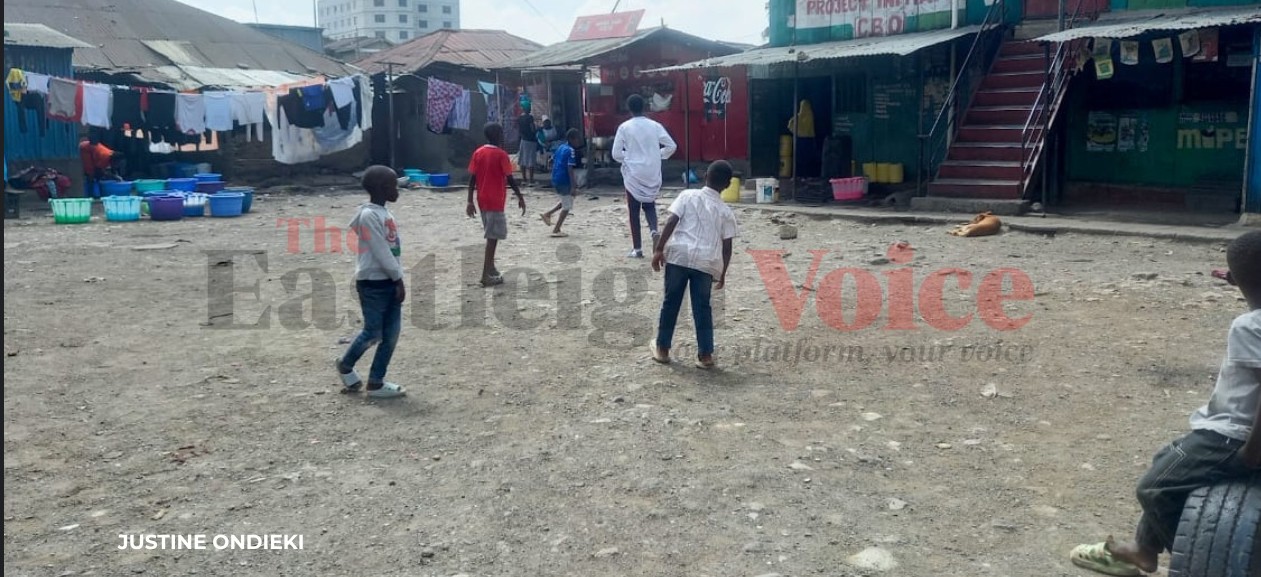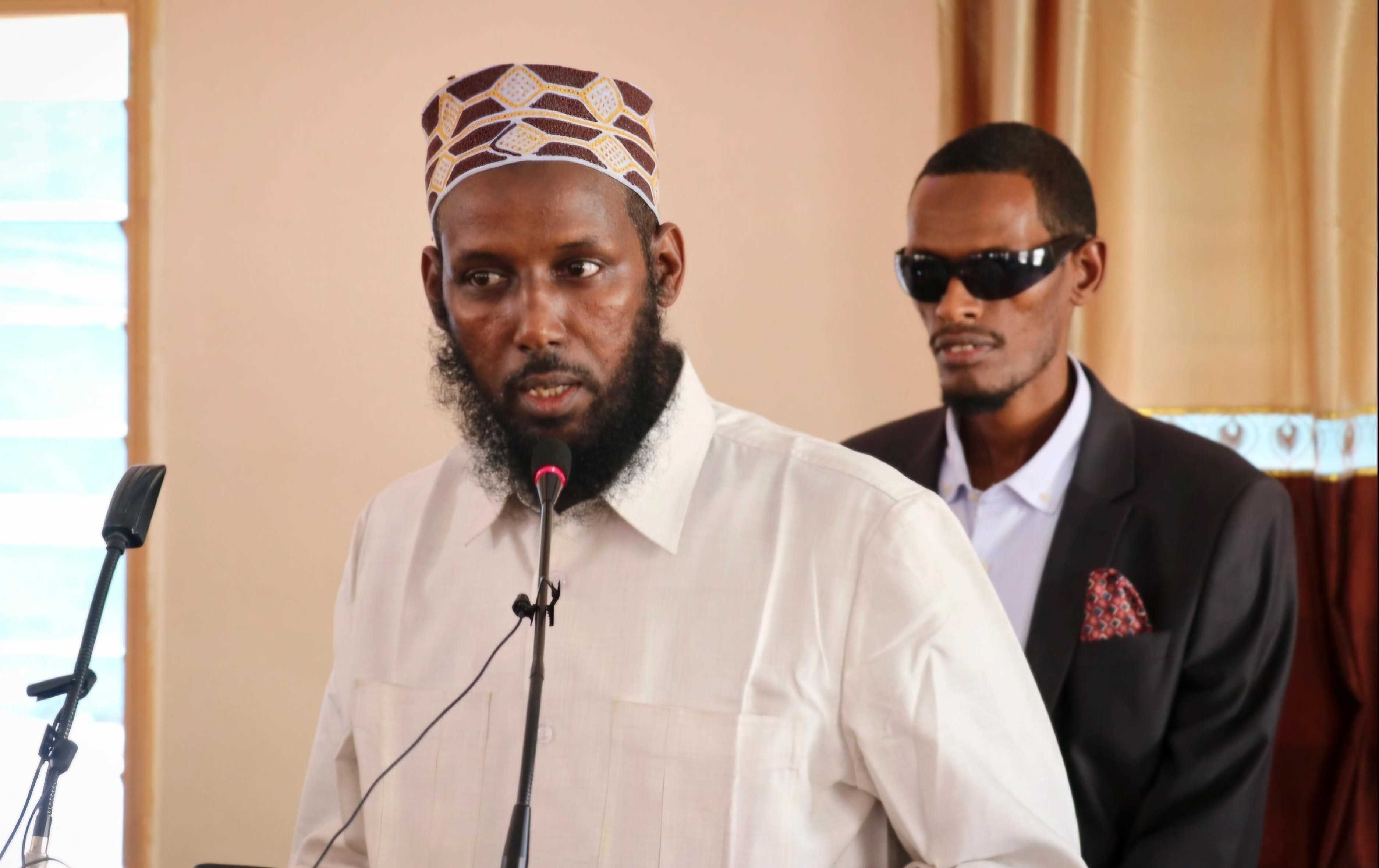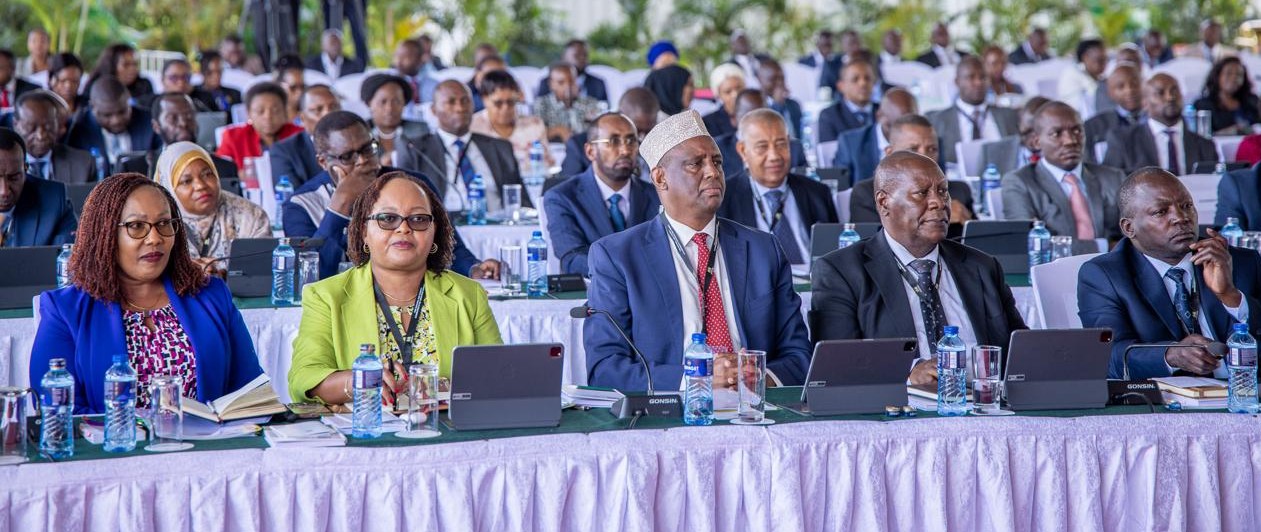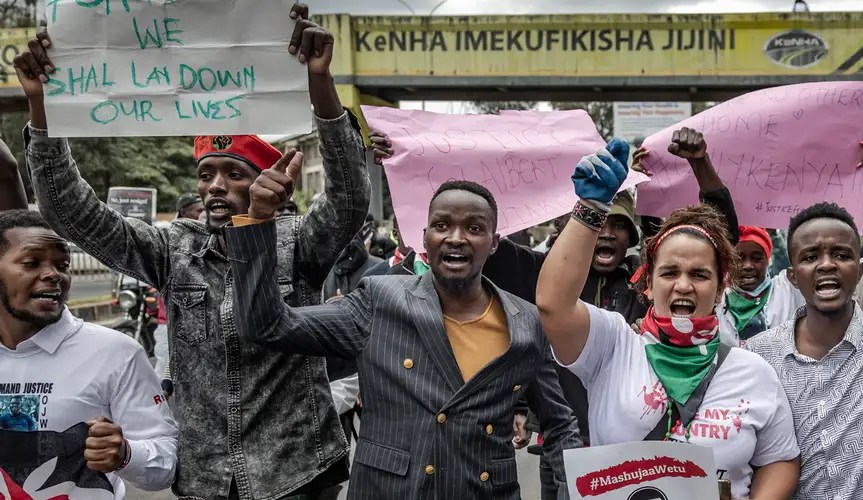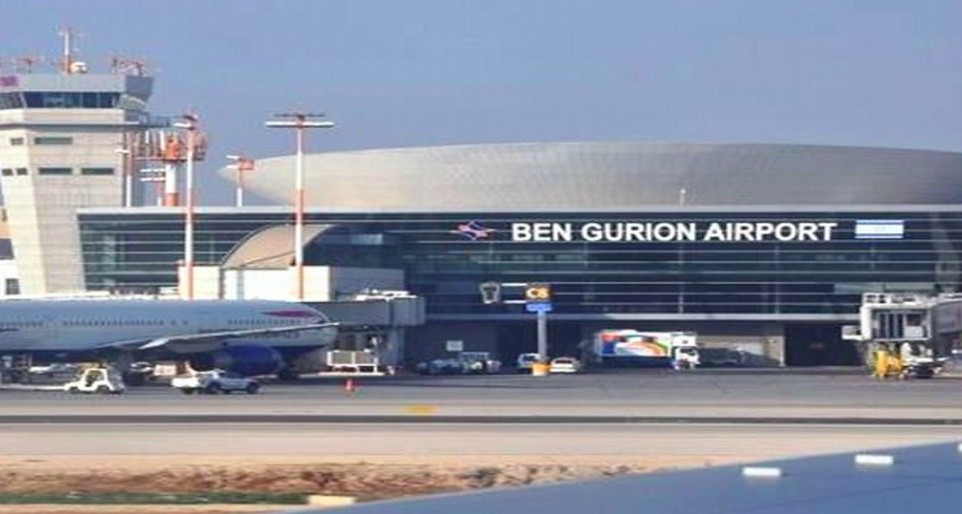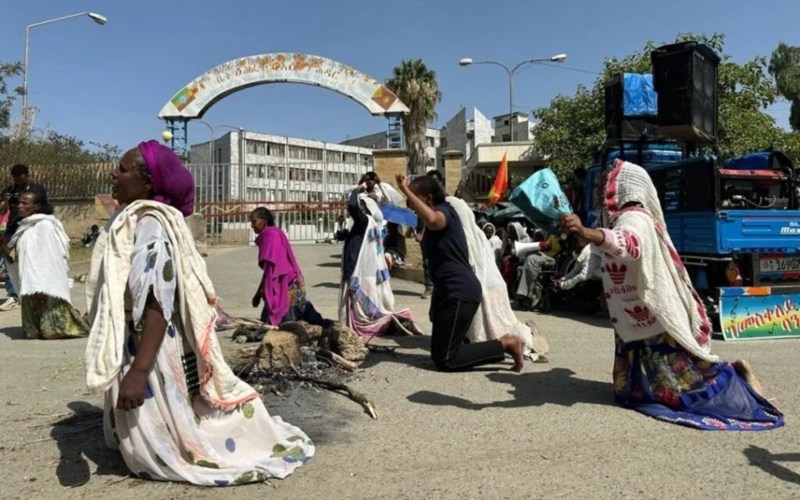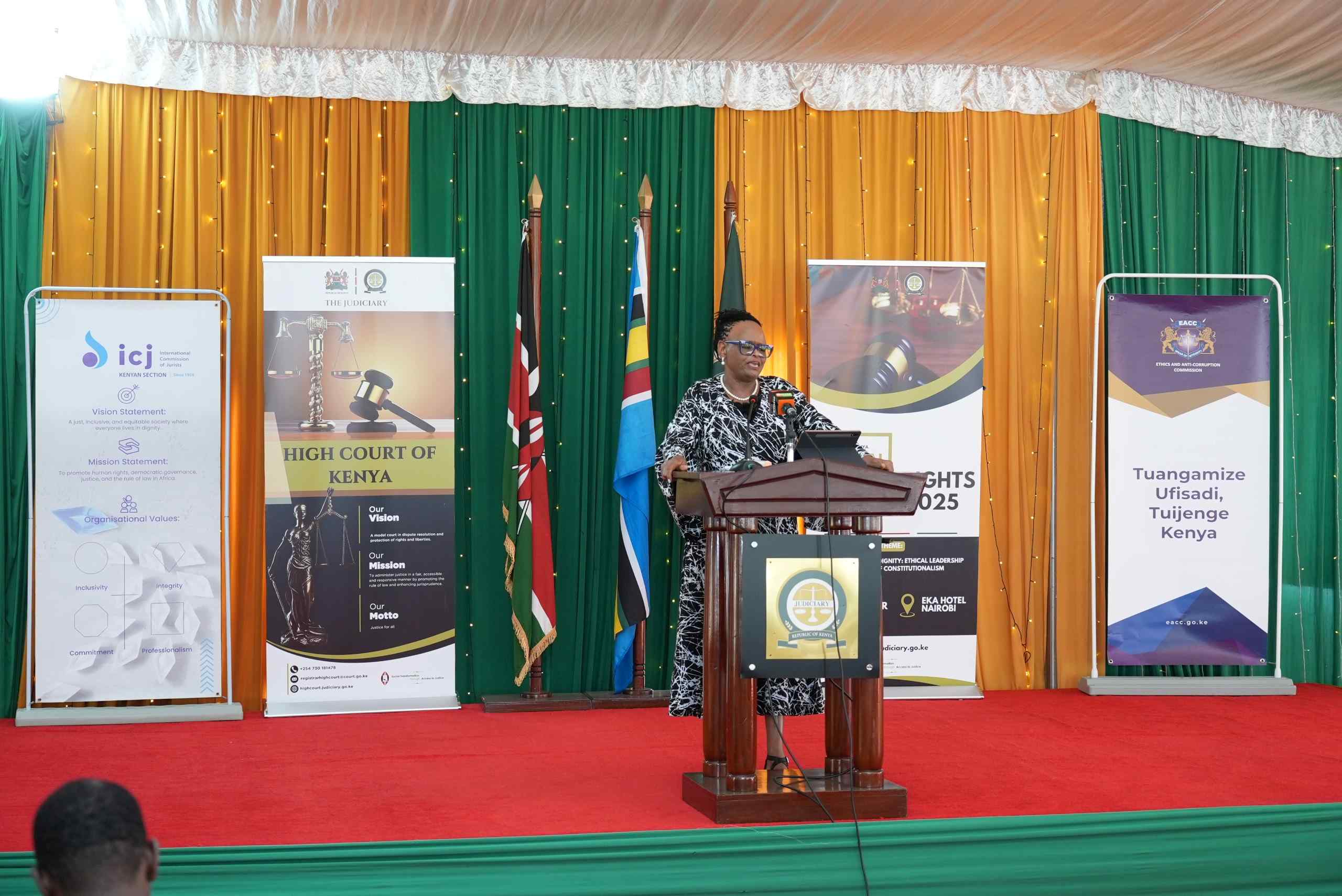Petitioner wants police restrained from blocking protesters heading to State House
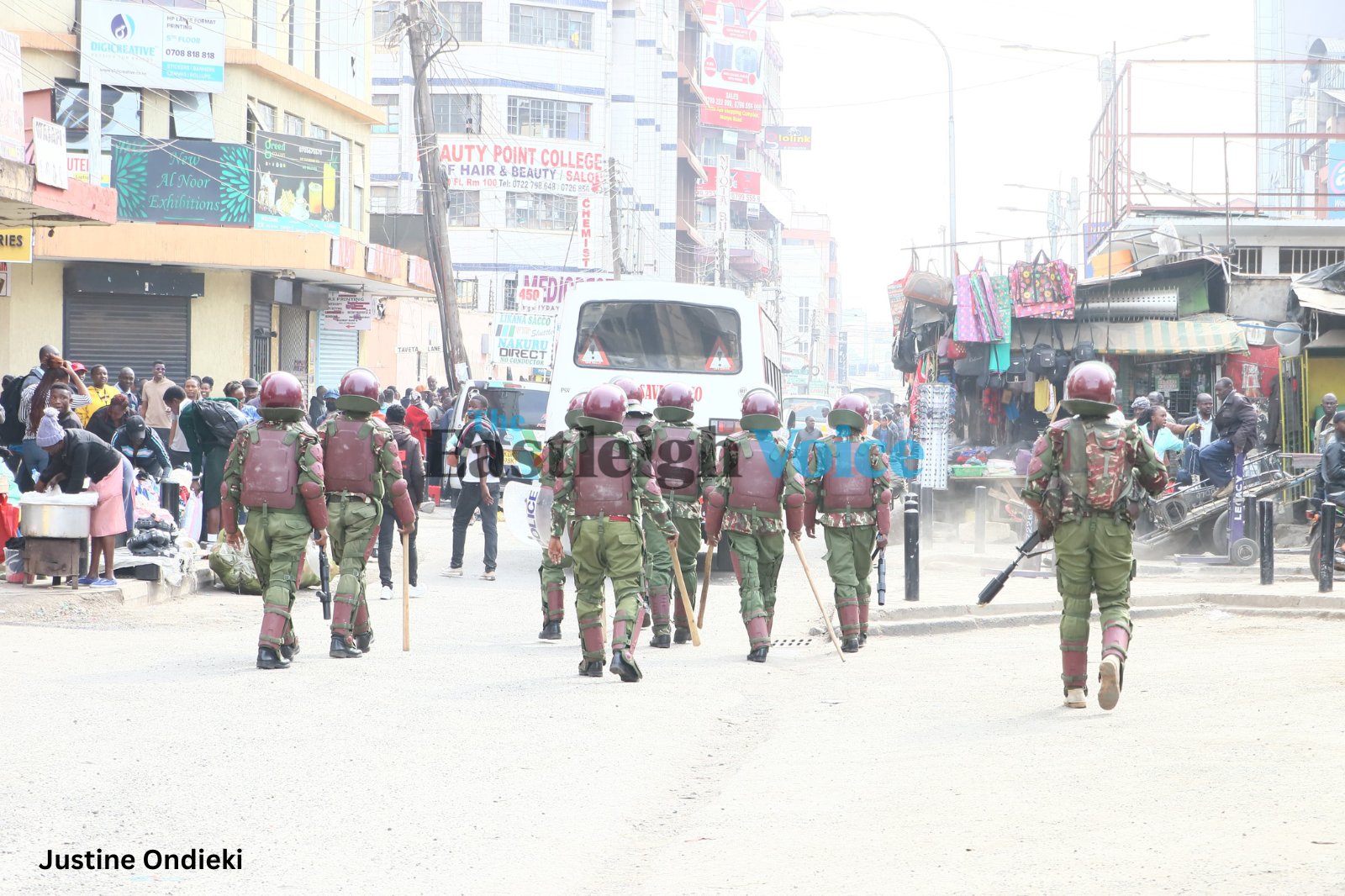
Prof. Ogola says past attempts at staging such processions have been considered and officially termed treasonous and against laws on protected areas, despite placing appropriate notifications to the relevant offices.
A civil society organisation has petitioned the High Court to prevent the police from interfering with a procession of protesters scheduled to march to the State House in Nairobi tomorrow.
The protesters intend to present a petition to President William Ruto, who is currently under pressure to address grievances raised by the youth.
More To Read
- Treasury CS John Mbadi defends ballooning State House budget
- IG Douglas Kanja urges court not to issue orders over political activity claims
- Cabinet backs data-driven plan to tame infrastructure overpricing
- Court dismisses petition challenging Muturi’s removal, says former AG resigned voluntarily
- Morocco's Gen Z protests: What you need to know
- Morocco: Gen Z protests turn violent, two killed
Operation Linda Jamii wants the high court to direct the Acting Inspector General of Police, Gilbert Masengeli, to designate gates or specific zones within the State House and state lodges through which the protesters can deliver their petition for onward transition to the president.
"Pending hearing and determination of this petition, an order be issued (to the acting IG) to forthwith make elaborate preparations and to take adequate security measures towards facilitating the planned parallel peaceful processions to State House Nairobi and Mombasa (and state lodges) as organised by the petitioners herein and scheduled for July 30, 2024," the petition reads in part.
In an affidavit supporting the petition, Professor Fred Ogola, who identifies himself as the convener of the planned procession, argues that several significant national events and decisions occur at the State House.
He asserts that this is the appropriate location for presenting their petition to President Ruto.
"The decisions and events taking place within those premises have far-reaching consequences for the nation and impact millions of lives, and as is the custom in a democracy such as ours, not every citizen would be happy with and agree with every single decision and policy enacted by the president," states Prof. Ongola in the affidavit.
"It, therefore, follows that the aggrieved people have the right, peaceably, unarmed, to assemble, demonstrate, and picket outside the aforementioned State House and lodges, as well as to orderly present petitions to the president right at the premises where the most impactful decisions are being made on a daily basis."
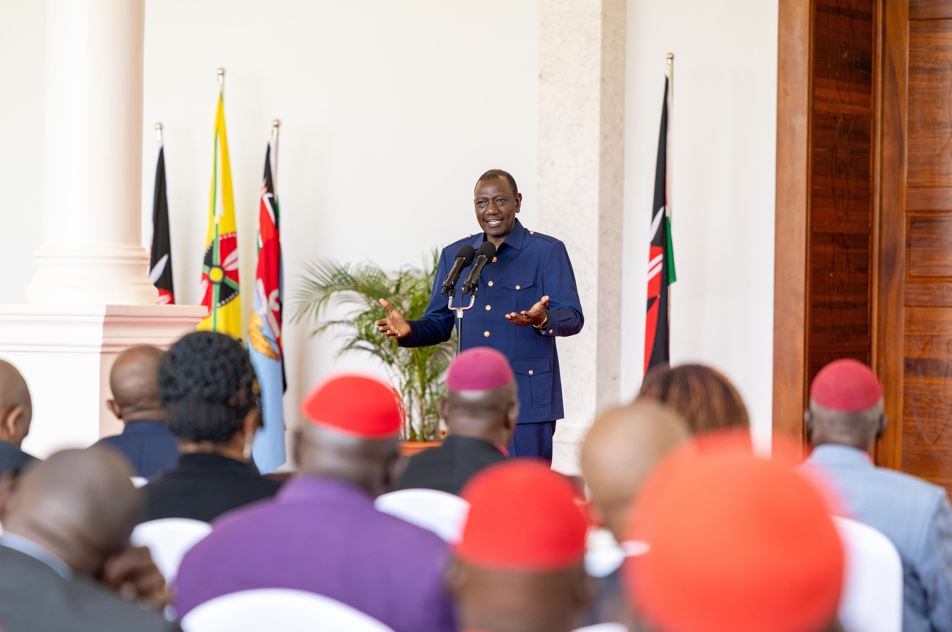 President William Ruto when he met leaders of the African Independent Pentecostal Church Africa at State House, Nairobi on June 29, 2024. (Photo: PCS)
President William Ruto when he met leaders of the African Independent Pentecostal Church Africa at State House, Nairobi on June 29, 2024. (Photo: PCS)
Prof. Ogola says past attempts at staging such processions have been considered and officially termed treasonous and against laws on protected areas, despite placing appropriate notifications to the relevant offices.
The petitioners want the high court to issue orders prohibiting the IG, his agents, employees, and servants, among others, from arresting, intimidating, abducting, torturing, maiming, detaining without trial, or murdering Prof. Ogola and any other person deemed to have been involved in the planning and the intended execution of the processions.
They want the high court to summon the IG to show cause in case any orders from the petition are disobeyed.
Prof. Ongola confirmed to the Eastleigh Voice that the petition had already been received at the high court in Kitale, but they were still waiting for orders and directions.
State House, meanwhile, is a protected area under the Protected Areas Act. A protected area, as defined by the Act, is a place where extra precautions are taken to prevent unauthorised entry while also maintaining public safety and order.
Trespassers can be removed peacefully or violently if they decline to respect orders twice. The use of arms is permitted only when there is a reasonable belief of imminent danger of grievous bodily harm and if the arrest cannot be effected otherwise. However, the use of arms must aim to disable rather than kill.
"The use of arms under this section shall be, as far as possible, to disable and not to kill," reads the ACT.
The Act mandates the prescribed authority to take reasonable precautions to prevent inadvertent or accidental entry into protected areas, especially during the hours of darkness. These precautions include fencing the protected area and prominently displaying warning notices.
Once these precautions are in place, no compensation or damages can be claimed for injuries or deaths resulting from unauthorised entry into the protected area.
Top Stories Today
